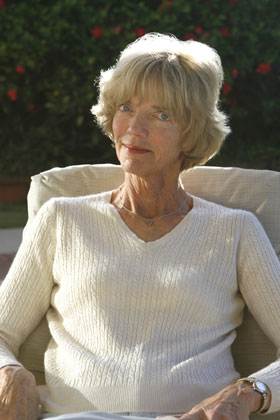
As long as humans have been human, philosophers and regular folks alike have wondered: How can people be so caring and yet so cruel? Do individuals have the capacity for change?
On Feb. 5, Patricia Churchland will discuss how recent scientific discoveries are illuminating these questions. Churchland is the UC President's Professor of Philosophy at the University of California at San Diego and was a 1991 recipient of a MacArthur fellowship. Her talk, "Decisions, Morality and the Brain," is part of the Provost's 2007-2008 lecture series "On Being Human."
Churchland says this subject is not just for philosophers and neuroscientists.
"Everybody is interested in this," she says. "My hairdresser is really into all this. The guy who painted our house, he wanted to sit and talk about it. We all live and breathe our social interactions, and we're still deeply puzzled by why people behave the way they do."
Family and community bonds set the stage for morality, Churchland says.
"We want to do things that are good for family members or people we know well," she says. "We are wired, as part of the way the genes make the brain, to care very much about our family."
One way the attraction is strengthened is through breastfeeding, she says. While nursing, mothers and babies experience a surge of oxytocin, a chemical that causes feelings of trust. Oxytocin and other brain chemicals strengthen bonds among families and neighbors members of what philosophers call the "in-group." Morality is an outgrowth of these in-group bonds.
Although cultural expression of these bonds varies around the world, Churchland says, "what is amazing is that in our fundamental capacity we are pretty similar."
In contrast to the positive bonds in the in-group, humans are often hostile to people in other groups.
"It is remarkable that from time to time you see these incredible flare-ups between groups," she says. "The people involved can be well-educated, kind, trustworthy, and yet they will hack the head off a baby in the out-group when conditions are right.
"There's a huge amount we don't understand; we have clues from here and there," she says. "But we have enough that it's cause for really fascinating reflections on our selves and some of the deepest features that make us what we are."